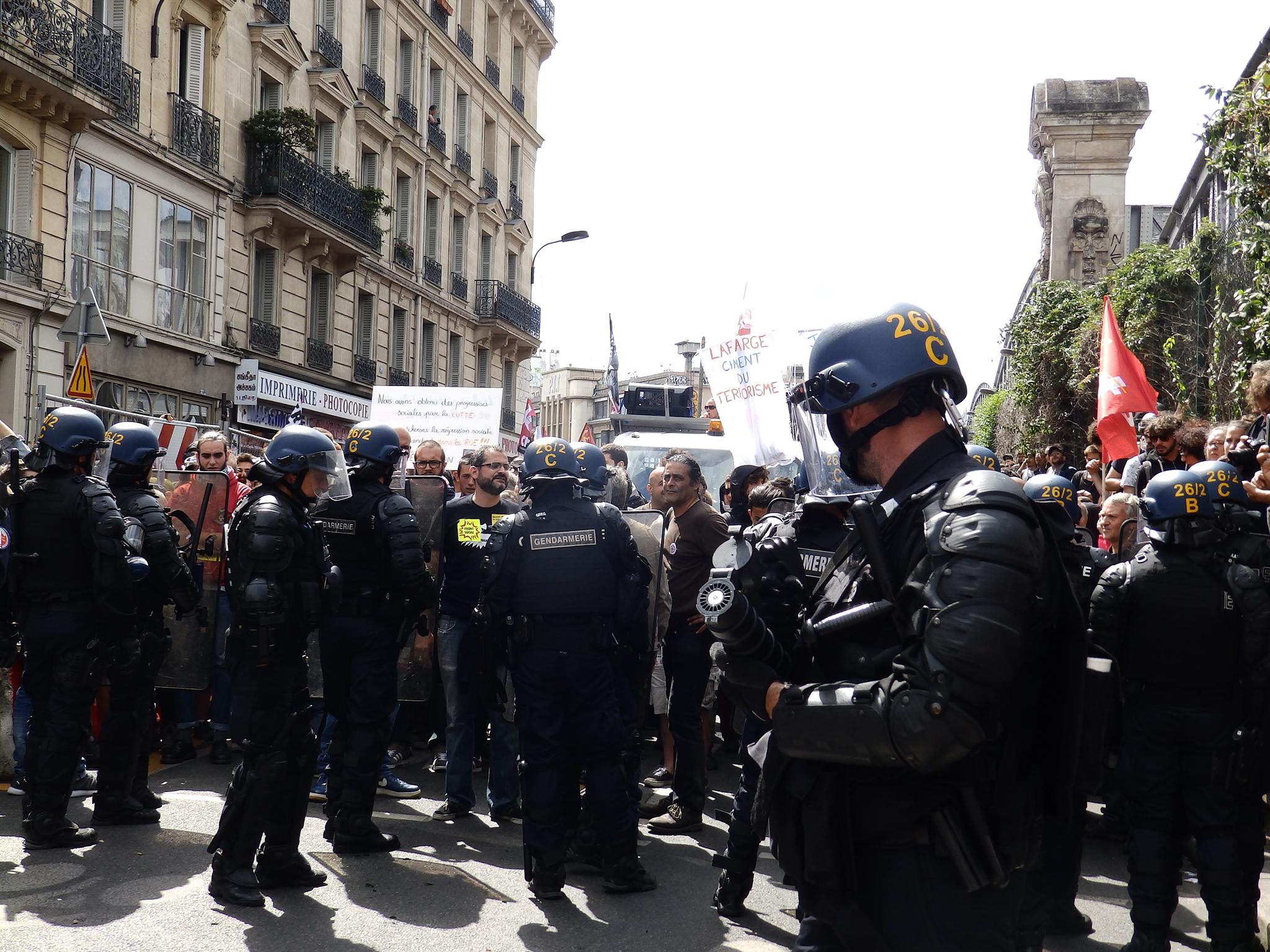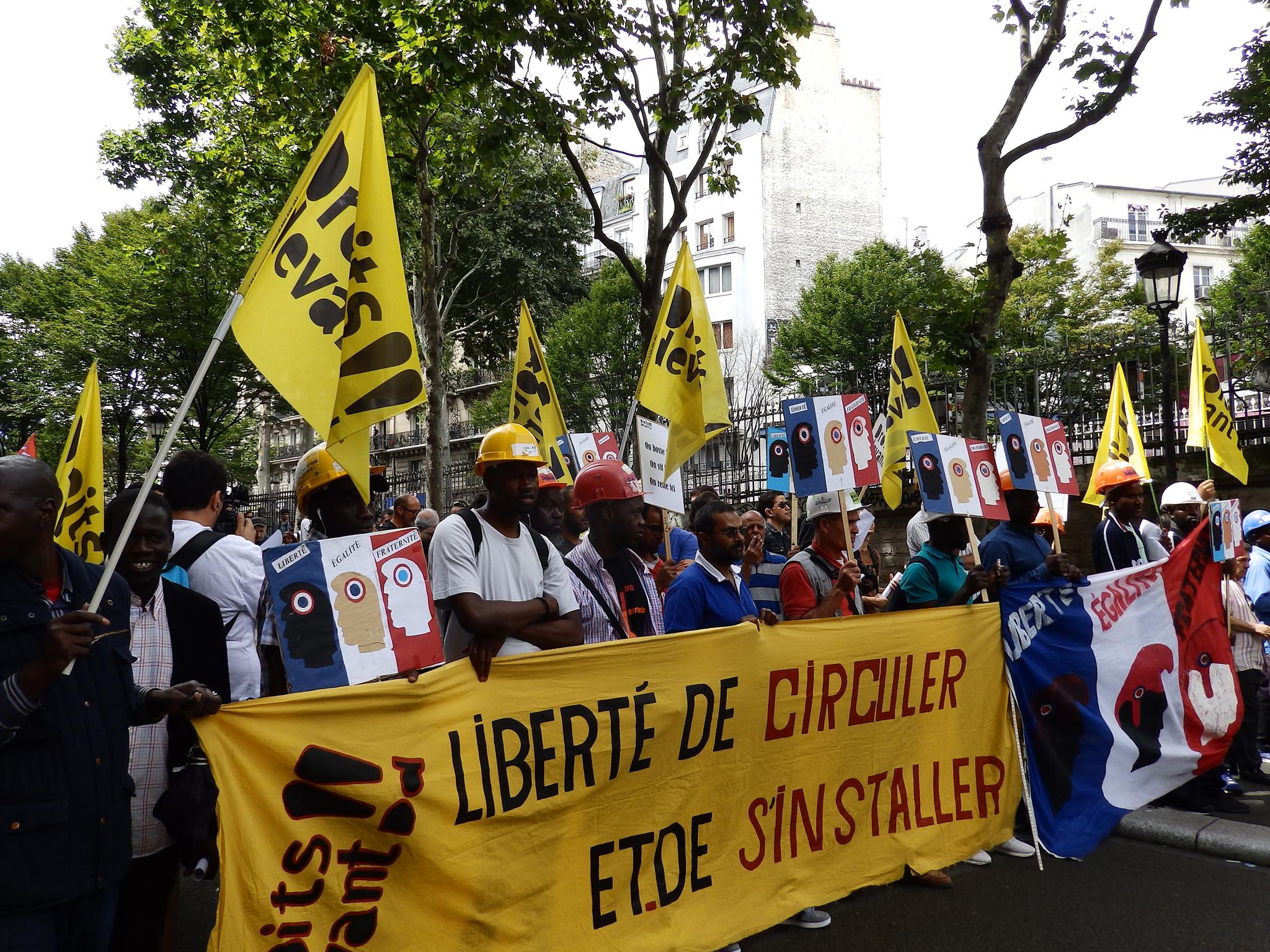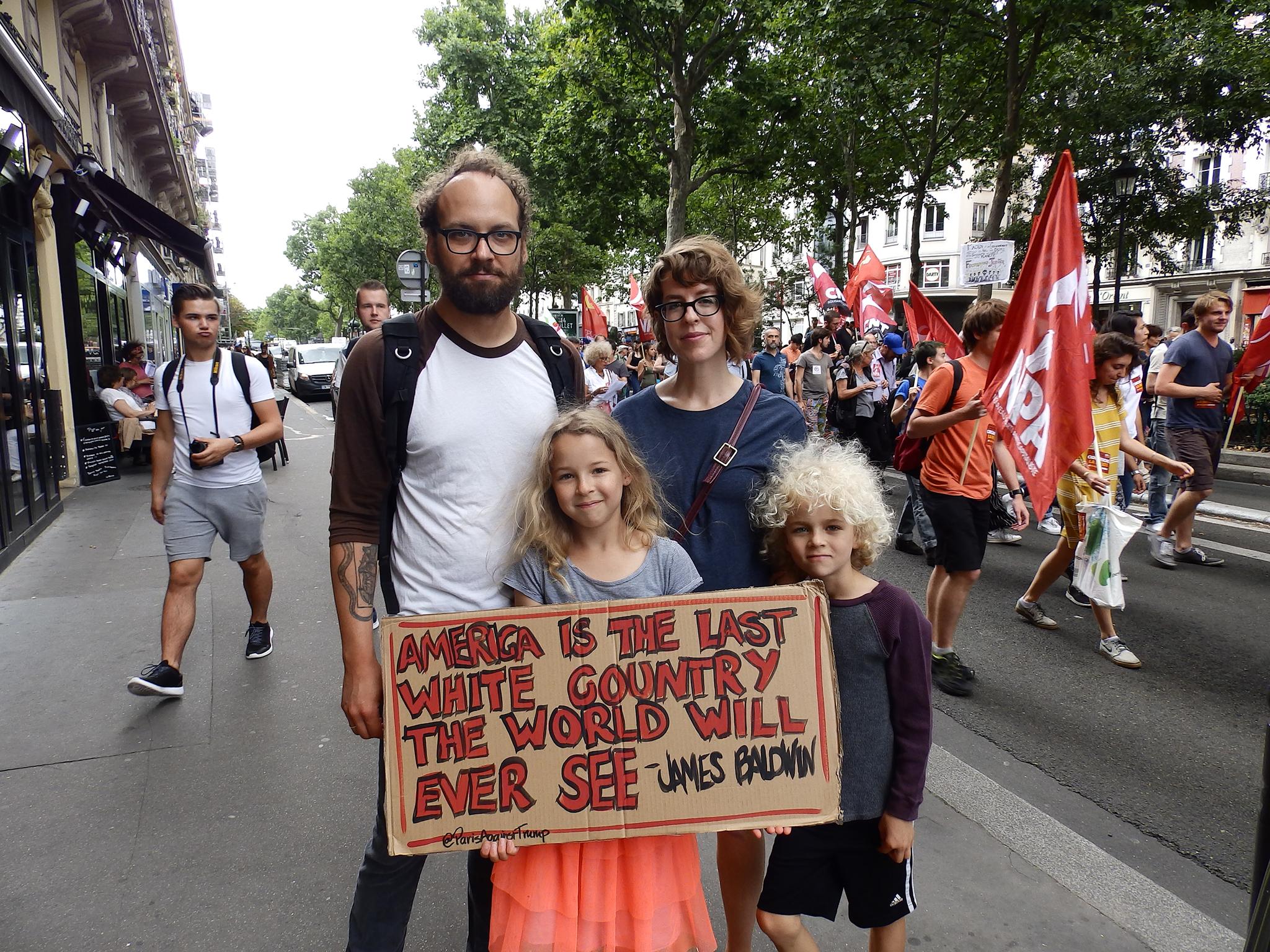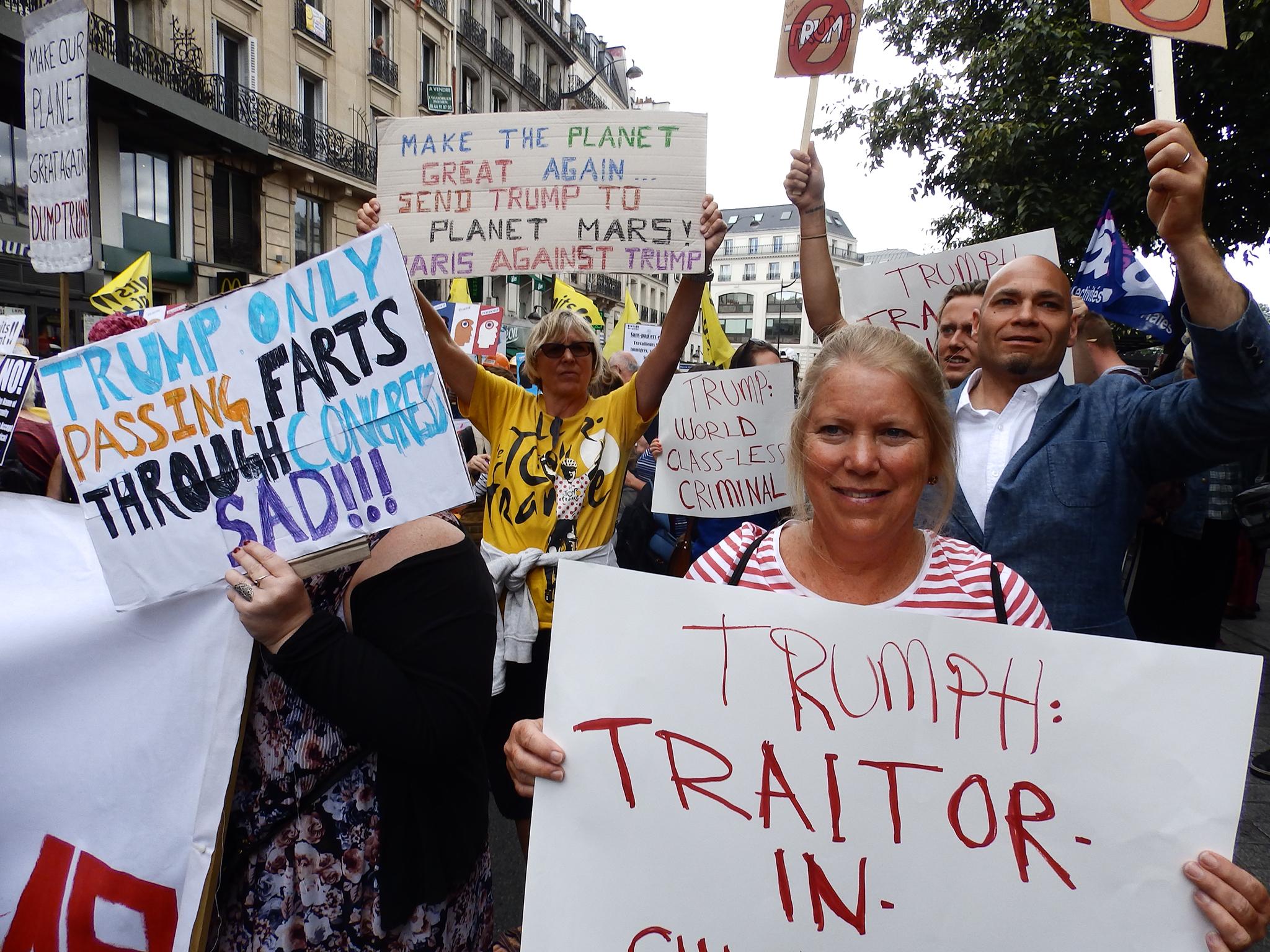Protests erupt in Paris as Donald Trump attends Bastille Day rally
But ire of most French marchers is directed at French president Emmanuel Macron and his policies

Bastille Day protests threatened to boil over into violence at the end of Donald Trump’s visit to Paris, as his opponents took to the streets for the second consecutive day.
Mask-wearing demonstrators threw glass bottles and missiles at lines of riot police blocking roads near the French capital’s Gare du Nord station, stopping a huge march in its tracks.
Tensions rose as demonstrators attempted to push forward using a lorry and reinforcements arrived armed with tear gas, but the stalemate ended when police abruptly pulled back and let the march continue.
It was a tense end to a previously upbeat protest, encompassing a diverse range of anti-Trump activists as well as socialists, pro-Palestinian groups, migrants’ rights activists, environmentalists and anti-fascists.
“No Trump, no KKK, no fascist USA,” chanted marchers holding “Make The Planet Great Again” signs, shortly after Mr Trump and his entourage left Paris following grand Bastille Day celebrations with Emmanuel Macron.
Lisa Gilmore, an American tourist holding an ironic placard calling herself a “paid protester”, said: “We feel he does not represent us, we don’t want people to think that he does and we’re doing everything we can to get him out office.”
Her friend, Julia Hartlé, called the US President “hostile to the planet”, while Californian Lori Chapin said his decision to withdraw from the Paris climate change agreement was the “icing on the cake”.
“I’ve thought he was a buffoon for 25 years and when he became President I was embarrassed for my country and the world,” the 63-year-old added.
But the ire of most French marchers was directed mainly at Mr Macron and his policies on workers’ rights, the economy, conflict and the country’s ongoing state of emergency.
The Front Social accused the French President of “parading as a war chief” at the Bastille Day military parade “with the racist and misogynistic US President as his accomplice”.

After the initial relief brought by Marine Le Pen’s defeat in the French presidential election, there is widespread dissatisfaction with Mr Macron on the French left.
Florent, an activist with the New Anticapitalist Party who did not want his surname to be published, said he was opposing Mr Macron’s planned labour reforms.
“He is right wing and I think he is starting to realise that he will be getting a lot of trouble,” he added.

Mr Macron argues the reforms, making it easier to hire and fire employees, will boost growth but opponents argue that they erode fundamental rights.
Gaby Fries, a German woman living in Paris, said Mr Macron was continuing a “war on workers’ rights” in France.
“Mr Macron is playing a double game – on one day he says something on television and the next, the government is doing the opposite. It’s a façade,” she added.
“When I speak to friends in my circle, they hate Mr Macron.”
The French President is riding high on his party’s landslide victory in the recent parliamentary elections, but faces an uphill struggle to unite France on key issues including the economy, migration and counter-terror laws.
His invitation to Mr Trump was seen as a savvy move to ingratiate himself with a President dedicated to a protectionist “America first” trade policy, and strengthen cooperation on environmental issues and the fight against Isis.
Mr Macron wooed his American counterpart with a tour of war monuments to mark the 100th anniversary of the US’s intervention in the First World War before settling down to a bilateral meeting on Thursday, followed by a plush dinner at the Eiffel Tower.

Mr Trump was then guest of honour at Friday’s grand Bastille Day celebrations in central Paris, sitting next to his host to watch fly-pasts, a huge military procession and performances, including a marching band’s rendition of Daft Punk’s Get Lucky.
The unlikely pair – who have taken numerous swipes at each other in recent months – appeared comfortable and chatted freely throughout the spectacle.
Mr Macron ended the festivities with a speech hailing “a friendship across the ages” between France and the US.
“And that is why I wish to thank them, thank the United States for the choice it made 100 years ago,” he added. “Nothing will ever separate us.”
The leaders put their infamous white-knuckled greeting in Brussels behind them with a 27-second goodbye handshake before Mr Trump, his wife Melania and dignitaries headed to the airport.

Mr Macron swiftly departed for Nice, for a memorial to the victims of the Isis terror attack that killed 86 people on Bastille Day last year.
The French President made a speech at the scene where an extremist ploughed a lorry into families, before meeting victims’ families under tight security, amid fears of further attacks targeting crowds.
Join our commenting forum
Join thought-provoking conversations, follow other Independent readers and see their replies
Comments
Bookmark popover
Removed from bookmarks